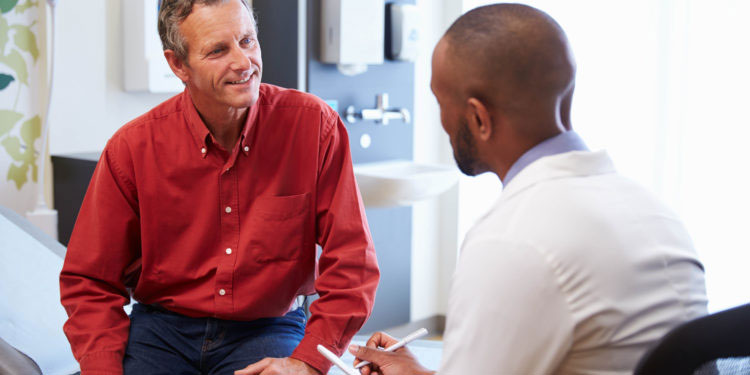Get Screened
Colorectal cancer screening is the best means to catch pre-cancerous polyps and diagnose colon cancer at its earliest stage, when it’s treatable and curable.
A colonoscopy is a colorectal cancer screening test. It helps us detect and treat abnormal growths called polyps, which can develop into colorectal cancer over time. A colonoscopy is the best way to find cancer early before symptoms develop. This is when treatment is most effective. At Henry Ford Health, we make it easy for you to get your colonoscopy from experienced gastroenterologists.
Our colonoscopy screening program offers:
Our experts recommend that people with an average risk of colorectal cancer begin screening at age 45 and continue screening until age 75. If you are at an increased risk for colorectal cancer, start screening at age 40 or as recommended by your doctor.
You’re at an increased risk of colorectal cancer if you have:
It’s important to clean and empty your colon so your doctor can easily see and remove any polyps during your colonoscopy. You follow a special diet of clear liquids and strong laxatives for a day or two before your procedure. This is called bowel prep. Your care team will give you instructions so you know what to do. Stay near a bathroom during your bowel prep, as you’ll need to go often.
Before your colonoscopy, you receive pain medication and a sedative. These medications help you relax and minimize discomfort. Because of these medications, you can’t drive afterward. You’ll need someone to go with you to your appointment and take you home.
Your colonoscopy takes place in a private room and lasts about 30 minutes. A gastroenterologist or colorectal surgeon does the procedure using a colonoscope, a thin tube about the width of a finger with a light and tiny camera on the end.
During the procedure:
After the procedure:
If the results of your biopsy are positive, meaning we found cancer in your colon, rectum or anus, we may recommend additional tests to confirm a colorectal cancer diagnosis . A team of experts on our colorectal cancer tumor board reviews your case and makes a plan for colorectal cancer treatment.
People between ages 45 and 75 with an average risk of colon cancer should have a colonoscopy every 10 years. You may need a colonoscopy earlier or more often if you are at an increased risk of colorectal cancer or if the results of a previous colonoscopy were abnormal.
Colonoscopy is the most common colorectal cancer screening test. But there are other ways of screening. If you aren’t healthy enough for a standard colonoscopy or can’t have sedation, your doctor may recommend an at-home stool test or virtual colonoscopy. Learn more about colorectal cancer screening and colonoscopy alternatives.
It’s normal to feel nervous about having a procedure, but a colonoscopy is one of the safest procedures we perform. The main risks, although rare, include:

Colorectal cancer screening is the best means to catch pre-cancerous polyps and diagnose colon cancer at its earliest stage, when it’s treatable and curable.
We use cookies to improve your website experience. By using this site, you agree to our Terms of Use. Read our Internet Privacy Statement to learn what information we collect and how we use it.